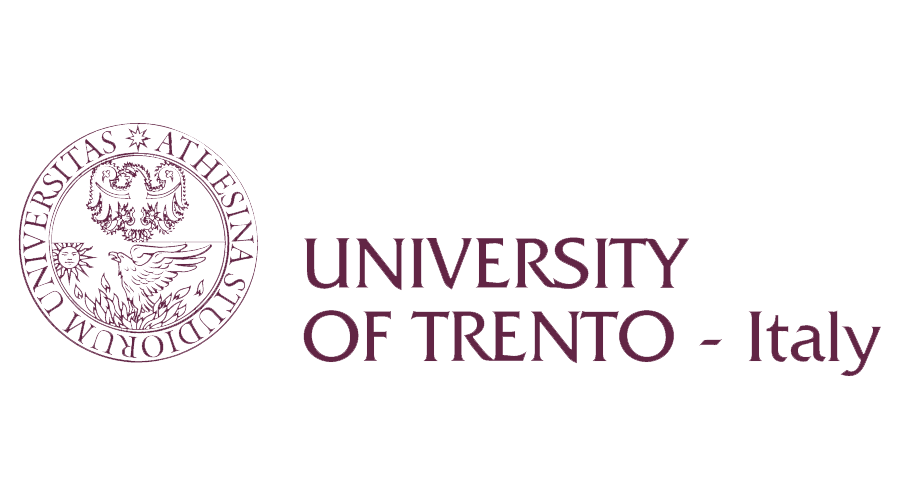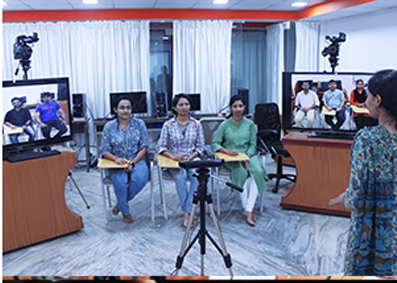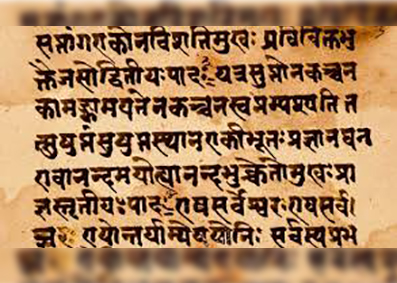Why Amrita?!
Doctoral programs at Amrita Vishwa Vidyapeetham are designed to develop outstanding educational researchers with a wide range of research skills as well as in-depth knowledge and practical understanding and expertise in their chosen field of educational research. Candidates seeking admission can enroll in the campuses at Amravati, Amritapuri, Bengaluru, Chennai, Coimbatore, Faridabad, Kochi and Mysuru.
Eligible candidates shall be provided a variety of research and teaching assistant scholarships. Amrita has a pool of outstanding faculty with Doctorate from globally known Institutions and Universities who continuously engage in research with partners across the world
Ranked 7th Best University in India
Get Mentored by Outstanding Faculty from
India & Abroad
Wide Range of Research Areas to choose from
Focus on Societal and Industrial Driven Research
Program Highlights
Amrita is a multi-disciplinary, research-intensive, Institution of Eminence accredited by NAAC and ranked as the No.1 Private University in India by Times Higher Education World University Rankings 2020.
Patents Filed
Centers of Excellence
Publications
Collaborations
Funding
Funded Scholarships
PhD Faculties
University Accreditations & Recognitions
Amrita has been selected by the Indian Government as an Institution of Eminence to be developed into a world-class institution which would put India on the global education map. The National Assessment and Accreditation Council (NAAC) accredited our University with an ‘A++' grade in August,2021 (the highest possible grade given by NAAC).


PhD Programs
GROUP BY
- ALL
- Amaravati
- Amritapuri
- Bangalore
- Chennai
- Coimbatore
- Faridabad
- Kochi
- Mysore
Admission Open for PhD
Fee Structure
|
TUITION FEES (Per Annum) External Scholars |
TUITION FEES (Per Annum) Internal Scholars |
|
| AMRAVATI | ₹30,000 | ₹20,000 |
| AMRITAPURI | ₹30,000 | ₹20,000 |
| BENGALURU | ₹30,000 | ₹20,000 |
| CHENNAI | ₹30,000 | ₹20,000 |
| COIMBATORE | ₹30,000 | ₹20,000 |
| FARIDABAD | ₹30,000 | ₹20,000 |
| KOCHI | ₹30,000 | ₹20,000 |
| MYSURU | ₹30,000 | ₹20,000 |
| NAGERCOIL | ₹30,000 | ₹20,000 |
Types of Scholarships
-
At Amrita Vishwa Vidyapeetham over 500+ Scholarships are open under
- Chancellor’s Scholarship
- Dean’s Fellowship
- International Scholarships
- Industry Sponsored Scholarships
- Research and Teaching Assistant Scholarships
- Amrita Vishwa Vidyapeetham PhD Scholarship (for Full-Time only) – From Rs. 18,000 to 30,000 per month stipend. Additional support for research infrastructure, facilities and publications.
- Visvesvaraya Scholarship – Upto Rs. 43000 per month stipend alone. Additional support for research infrastructure, facilities and publications.
- International Internships – Additional stipends during International internships at Partner universities in Europe, Australia, Asia and US
International Collaborations






Over the years, Amrita Vishwa Vidyapeetham has developed working relationship with many of the best universities in the world. Amrita collaborates with many renowned foreign universities in many diverse fields of knowledge like engineering, security, communication, medicine and social sciences.

International Opportunities
Funded PhD opportunities with various institutions in Europe:
- University of Trento, Italy – For All engineering, Sustainability, and Gender studies
- Valencia Polytechnic University, Spain – For Industrial and Telecommunication Engineering
- Merging Voices Erasmus + (composed by four Portuguese Institutions: NOVA
- University Lisbon (NOVA), Universidade do Porto (UP), Universidade de Trásos-Montes e Alto Douro (UTAD) and Universidade do Algarve (UAlg).) - For All Engineering, Business Schools, Gender Studies
- Opportunities for PhD scholars to visit international universities for working on joint publications.
- PhD student exchange programs with universities for international experience
- Opportunity for double degree, joint degree and cotutelle degree with international universities

Important Links
Q&A
Frequently Asked Questions
What is your plan after Ph.D.?
- To become a faculty
- You have to spend time in networking with academicians, teaching students, attending conferences.
- Develop your teaching skills through your experience and inspire the students with your passion.
- To work in a Industry
- You have to spend time collaborating with Industries, visiting various industries, and participating in industrial conferences related to your area.
- You can find real time problems in industries and work on it to give a solution which will be a real value addition to your Ph.D. and career.
- Want to start a company
- You have to spend time finding customer pain points, participating in start up events, patenting an innovation and making a business plan
- Network with people having entrepreneurial interest. Entrepreneurship is not a one man show. Find a Co-Founder through networking who is highly motivated and committed in your ideas.
Doing high impact research
- Doing high impact research is a perquisite of you Ph.D.
- Spend more time in labs, experiments and testing your research to gain a deep knowledge in your research area.
- Add insights that you gained through your studies distinguishes your research work and makes it unique.
Communicating your work
- Communicating your research contribution to the research community is important.
- Communication of your research work can be done by writing blogs, doing vlogs. Do these communications regularly as this will help you to stand out and learn a lot.
- Publish research papers in articles and journals consistently.
- It is your first mile stone.
- As you begin your Ph.D. journey, you are finding your own way out to give new research insights in your area and there is no clear route map. Your first paper is your first milestone towards in your route towards your Ph.D. destination. So, it is important for you to reach your first milestone.
- It gives you a direction
- As you pursue your Ph.D., your opportunities, and possibilities to learn in endless. However, publishing your first paper helps you to align you towards your research area keeps you focused by avoiding what is unnecessary. So, it is high time that your efforts go into one direction of your research area.
- You build your credibility with your publication.
- As your make your first publication, you show how serious you are in your research. You become visible to the research community and you build an image for yourself with your research. So, go out and build an image for yourself.
- You will feel great pleasure, satisfied, and feel motivated after publishing your first
paper.
- Motivation is the key to anything and it is vital to stay motivated in your entire journey of your Ph.D. graduation. Your first publication will give you a great confidence and motivation than anything or anyone can give you during your Ph.D. journey. So, it is important to keep working to publish your first paper as a graduate.
- It motivates you to do more research.
- As one starts his research, your opportunities to contribute to the research world is endless. As you make your first contribution, it motivates you to contribute more research work.
Motivation is the key driver for you to complete you Ph.D. Many a times researchers lose their motivation due to various reason as the results are not tangible or visible to you despite doing a ton of hard work for a significant duration of time. Also, it is difficult for your family and friends to motivate you as they may not be able to understand what you are experiencing. So, it is your responsibility to keep your energy, momentum, and motivation throughout your Ph.D. journey. This motivation can be sustained and your confidence in research can be increased during your research by developing certain habits and doing a few activities.
- Maintain a research journal
- Record your daily activities in a journal
- Review it every week
- A research journal gives you a view of your direction.
- When you lose your motivation, it will show you how far you have travelled and keeps you motivated.
- When you feel lost, it helps you to redirect and get on track.
- Most importantly when you are making your thesis, you can make 200–300-page manuscript with it.
- Find time for your hobby.
- Investing a few hours weekly in your hobby refreshes your mind. It helps you to keep focused. Your hobby can be anything like art, sport, adventure, travel, or volunteering.
- Spend time with your family & friends
- You must spend time with your family, kids, parents, and friends. Pursuing your Ph.D., you cannot afford to miss your relationships with them. Spending quality time with family and friends keeps you motivated
- Make research publication.
- As a research, publications are important not only for getting your degree awarded but also to keep your motivation in your Ph.D. journey.
- Keep publishing your research work continuously and the learn from the critics and reviews that can mould you as a prominent researcher.
- You have an irrational LOVE for research.
You are investing a significant duration of your lifetime to earn A Ph.D. degree. It is a choice that you make even when you have other family responsibility, have good earnings. So, A choice to pursue a Ph.D. is an outcome of your intense love towards research. You cannot quantify or express this love for research through words making your love for research irrational.
- Challenging the status quo.
As an individual when you always think of solutions how good things can be and how better the world can be and how prosperous the society can be through your innovative ideas. When you are not satisfied with the current status quo of the knowledge that you possess now. Successful Ph.D. graduates have worked on projects that are challenging the status quo or the present.
- You know why you want a Ph.D.
Once you decided to pursue your Ph.D., you must have a clarity on why you do a Ph.D. Only if you know exactly what you want to accomplish at the end of the Ph.D.
- You have a desire to invent.
A Ph.D. is one of the best ways to have the intellectual freedom to invent things you are passionate. You can invent something so critical that the marketplace licenses it from you and your impact translates from lab to the ‘real world.
- You enjoy the learning-teaching process.
As a graduate student you will be responsible to teach students and handle classes. Even if you don’t want to be a professor after the Ph.D., enjoy the process as teaching is a great way to learn.
- Have an area of interest that you feel is worth doing a Ph.D.
- Before you find your dissertation topic, do exhaustive research on the various research area of your fields.
- Try to figure out the future of your research area by accessing how it can impact the society by adding value.
- Discuss with people carrying out research in the same or similar research area.
- Take time to discuss with researchers from similar area and get inputs.
- Do not hesitate to reach out to them. Reach out to the researchers who have done high impact research. They will always guide you. You can reach them virtually, through mail or any means. Reach out to researchers across the world.
- Carry out an intense literature survey to chisel out the topic to find your Ph.D.
problem.
- Spend time reading research papers that has meaningful contribution and insights.
- Incorporate the learnings from your literature survey to come out with a quality dissertation.
People who pursue a Ph.D. after working in industry knew exactly what they wanted the Ph.D. for. They are always more motivated than the average Ph.D. student in the class. If you are currently working in industry, and get clarity and want to pursue a Ph.D., you are making the right decision
“Coming together is the beginning. Keeping together is progress. Working together is success.”
The benefits of collaboration in research are
- Increased creativity & out-of-the-box thinking.
- When you collaborate and brainstorm, you can come out with a number of ideas and solution which are novel and creative.
- You do not get stuck at a point and your ability to think out of the box and come with root cause of the problem is high.
- You can accomplish your work in a much short duration than doing it individually.
- Increased learning possibilities.
- Collaboration gives you the opportunity to work with people from other disciplines who are skilled and knowledgeable in another domain. You can get insights of their knowledge and experience.
- Not only your learnings in not restricted to knowledge but also you can learn to work a team, improve your interpersonal skills, and learn various approaches to solve a problem
- Everyone who helps materially gets their name on the paper.
- Collaborations not only gives you learning but it gives you an acknowledgment of your work by the way that you get your name in the research paper published as an outcome of your team work.
- People who contribute equally ‘share’ author position, including first author.
- When you contribution to the research work is significant, you can share the author position. It gives you a greater weightage to your profile and career in a long run.
- You can complete your research in quicker duration.
- When you collaborate carefully and work together as a team leveraging the strengths of everyone, you can complete the research in a quicker duration.
A great Ph.D. student has the character to be comfortable with long periods of intangible progress without losing motivation and, more importantly recognizes stagnation or failure of an approach early.
The qualities of a great Ph.D. student are
- Resilience
- You might go wrong in the direction of your research. You must have the strength and passion to realign your research to the desired direction without losing you motivation. Also, you can have your personal problems during your research which you have to be resilient and continue your progress in your research.
- Persistence
- At time there can be prolonged time of same situation without any progress in your research because of things beyond your control. There shall be no tangible research or progress in your experiment and you must continue doing your work with patience even is such difficulty.
- Punctuality
- All great researchers have developed the quality of being on time. You must put in anything that it takes to build this character in you. You earn a profound respect by developing this one character.
- Detailed
- As a researcher it is your ability to see things in detailed than anyone can do. So, develop a thorough knowledge in the field you are pursuing the research.
- Meticulous
- It is not that you only have detailed knowledge but also you seek attention to minute details and learn it deeply and make contribution with your deeper study in your field.
- Aware
- As a researcher you must be aware of various progress in your research field. You must be a continuous learner and being aware of the advancements in your field can make you more futuristic.
- Courteous
- By being courteous as a researcher, you inspire other people to learn. Also, it makes you easy for collaborating with other researchers and work which gives you a great research experience.
A PH.D. is a marathon not a sprint – Do not think how quickly you can finish a Ph.D. Find your pace that works for you. Be disciplined in terms of how you write, do your classes & assignments, develop your research plan, etc.
Take care in choosing your program – When exploring the right doctoral program, make sure to carefully explore the curriculum, faculty, potential for receiving scholarships, do you have teaching opportunities, and related things.
Use your Coursework to Explore Possible Thesis Ideas- If one is doing a Ph.D. program that includes extensive coursework, try whenever possible to start exploring thesis ideas.
Attend conference and Publish Papers – Do at least one major conference a year. It develops you contacts, get feedback, and learn what is happening in your field.
Apply for Funding – Most good programs will provide funding (3–5 years) for eligible doctoral students. You can take the opportunity to its fullest.
Look at the Job Market frequently – A Ph.D. helps you to get an exciting career. Ensure to look at the marketplace of career opportunities in your field and other career paths such as the private sector, policy, government, foundations, social enterprise, etc.
The best dissertation is a done dissertation – Too many people try to do a magnum opus and solve huge questions in their dissertation. However, be precise and narrow it down to give solutions to your research problem
- A good overview of your field
- You become an expert in your field and you will be able to communicate easily with other experts in your field. Then you can work with experts in other fields doing inter-disciplinary works that can contribute to the society
- A specialization and degree of expertise in a domain within your field
- As an expert in the field, you are exposed to the latest advancements and technologies in your field. This will help you to pursue a career that is more promising and exciting that others do not get.
- Appropriate research and analytical skills in your field.
- Your way of thinking and analysis a problem in your field is improved. You can become a think-thank in your field making significant contribution.
- A systematic way to approach a problem.
- As a Ph.D. graduate you become more proactive and your ability to approach and solve a problem becomes more systematic and structured.
- An ability to communicate with other thinkers in your discipline.
- You will be able to communicate with any resource person across the world in your discipline with ease and confidence.
- Improved writing and speaking skills.
- Writing your Ph.D. manuscript improvise your language skills and you become flawless in writing skills. Also, since you deliver or present things that you have learned so deeply, you will be able to speak more confidently.
- Love of knowledge and the pursuit of it.
- Once you complete your Ph.D., your desire to learn and gain knowledge increases. You will enjoy the pursuit of knowledge.
An excellent Ph.D. thesis must have the following characteristics.
- It must be analytically path-breaking with authentic results.
- It must have absolute formatting and referencing.
- It must be comprehensive without any grammatical errors & plagiarism.
- It must be a done dissertation.
Coursework is an essential part of any doctoral program, and it sets the stage for the dissertation phase. It is intended to ensure that students develop breadth and depth in their understanding of their field. As per regulations of UGC each Ph.D. student shall be required to undertake pre-Ph.D. course work for a minimum of one semester (six months). The course work must include a course on research methodology, which may include experimental methods, quantitative and statistical methods, and computer applications
A Statement of Purpose is a life changing document that puts forward your research interest, academic achievements, skills, achievements outside of work, and your potential to achieve higher goals. It is a way to describe you as a scholar.
- Appropriate words to describe you than impressive words.
- Write it from your heart.
- Describe your background, past experience, and some personal achievements, academic strengths and your accomplishments in your master’s field.
- If you want to refer to something big, like your portfolio, your research, a research paper available online on a website, or an important online course, use references at the bottom of the SOP like a research paper.
- Keep working on your SOP for some days and refine it until you are fully satisfied and confident.
- Keep it concise and understandable.
- Seek help from scholars at university. Take ideas from them.
A Ph.D. is indeed a wonderful experience by itself in academics and research. It also teaches one the following life lessons.
- An expertise to understand problem and work on the root cause to find a solution.
- The problem with an average human being is that he is reactive to any situation and make things worse. However, your Ph.D. experience will make you more proactive and make you approach and handle any situation in a structured manner and make right decisions in life.
- Time and resource management, organization, and prioritization.
- Your experience will help you to prioritize things based on its importance and relevance and utilize the resources in an optimal way.
- As a researcher, you develop a habit of writing a research journal and planning your activities. This helps you to keep you in an organised manner and manage your time effectively.
- It helps you to re-discover yourself.
- You are a newer version and the best version of yourself. You will no longer be a prisoner of the past and your will be more optimistic in life.
- Ability to work with a team.
- Collaborations is the key in your research. Your doctoral experience will develop your skills to work as a team. You will enjoy working in a team and accomplish great task easily.
- You understand importance of the little things in life.
- As a research graduate, you will take a holistic view of anything and even a little thing matters to you. You will enjoy every little thing in your life and
- The importance of learning and the ways to learn.
- You will understand that learning never stops. You will learn new things daily through in various ways.
- Self-motivation.
- You will never lose motivation in your life. Your motivation comes from within. No external factors can influence you. You will stay self-motivated in your activities.
- Time
- To earn your Ph.D., you will be investing a fair amount of your life time. You need to consider your personal responsibilities, priorities and ensure that you will be able to schedule and accommodate the time needed for it.
- Money
- While pursuing a full time Ph.D. your opportunity to make an earning is very less. You will be entitled to get scholarship which still may not satisfy the needs of your dependents. So, you need to make a personal financial plan to ensure your dependents do not get affected. Also, make a financial plan if you may need to extend your Ph.D. duration during which you are not entitled to get scholarship.
- Motivation
- Make sure that your if your motivation will carry you through the years, long hours, challenges, and frustration associated with doctoral research.
- Expectations
- What are your expectations for earning a Ph.D.? Are they realistic?
- Career
- Earning a Ph.D., will give you a promising career. You must make sure what career path you wish to choose after Ph.D., be it academics or industrial research or scientist or start a company.
As per the UGC_Ph.D._Regulations-2022, UGC has barred any Indian Institute from offering a Ph.D. degree online or in distance education mode. Hence no Indian University or Institution can offer a Ph.D. degree in online / distance education mode.
In 2018, the UGC had stipulated that Ph.D. shall be mandatory for direct recruitment as assistant professors from July 2021. However, UGC in view of the COVID-19 pandemic has decided to extend the date of applicability of Ph.D. as a mandatory qualification for direct recruitment of assistant professors from July 1, 2021, to July 1, 2023. So, if you aspire to start your career as an academician, it is high time that you enrol for your Ph.D.
Yes. You can do Dual Degree Ph.D. program and get two Ph.D. degrees awarded. Dual Ph.D. degrees are issued when one doctoral dissertation is used to fulfil the requirements for a doctorate in two different universities in two different countries. The candidate must have a supervisor at each institution. Dual Degree Ph.D. does not mean a degree in two different courses.
PhD Telegram Group
By joining the official Social Media, we can provide you quick details on
interview dates, programs, admission procedures, departments, student achievements, career
advice, research, and the scholarship program.
Email: phd@amrita.edu



































